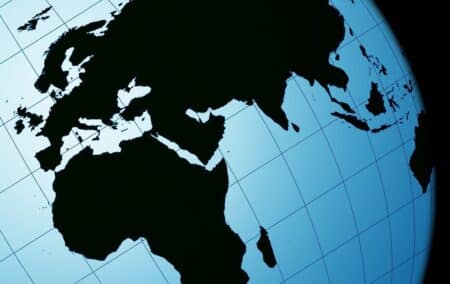As the Second World War marked the beginning of the colonial era’s demise, the Russia-Ukraine war is a pivot point that should inspire a fresh assessment of post-independence outcomes.
The Cold War and the independence movement overlapped for roughly four decades. During the following thirty years of post-Cold War globalisation, dozens of former colonies flourished economically amid varying degrees of liberty. The former colonies which have struggled the most economically and politically have tended to be resource exporters. It is as if Russia and South Africa are doing everything they can to signal that this will continue.
The 35 countries which chose to abstain from the UN resolution condemning Russia’s invasion of Ukraine were all from the Global South, as were three of the five that voted against, versus 141 in favour. The abstaining countries were predominantly commodity exporters.
If Ukraine decisively prevails on the battlefield, much blame will attach to resource-powerhouse Russia’s military being infested by patronage-inspired corruption. A failed Russian invasion would further confirm that the global economy increasingly rewards integration through value-added exporting while degrading the long-term prospects of resource reliant countries beholden to competitiveness-zapping patronage networks.
Putin achieves domestic support for his might-makes-right worldview by stoking nationalistic fervour for Russia again dominating its ‘traditional sphere of influence’ in central Eurasia. China’s economy is very different from Russia’s but its leadership also gains domestic support by fueling anti-Western nationalism to support its efforts to dominate East Asia and the Western Pacific.
China is the top customer of most resource-exporting nations. In many cases this equates to its being the paymaster for massive patronage networks. China has also been accused of pursuing an ‘elite capture’ strategy by funding major projects. Such accusations are harsher than the mostly ecological or efficiency-focused criticisms heaped on Western lenders and the World Bank for their funding of infrastructure projects in developing countries.
Key takeaway
Over seven decades since the dismantling of Western colonialism in Africa and Asia began, a key takeaway is that the top overachievers focused on adding value to exports destined for the West while many of the least successful former colonies continue to rely on exporting commodities. As services and digitalisation increasingly drive global growth, commodity-exporting nations that don’t fundamentally restructure to add value to exports will lag further as their unemployment backlogs bulge.
While Russia is the world’s largest, most resource-endowed nation, its economic trajectory is as disappointing as South Africa’s – and for largely the same reasons. Abundant resource wealth makes it easy to build a patronage network designed to entrench ruling elites. But such patronage networks undermine competitiveness, while today’s global economy richly rewards countries, companies and workers who add value within global supply chains. The localisation-styled policies and practices which sanctions will inflict on Moscow will be as detrimental in Russia as they are here.
Dozens of former colonies have prospered through adding value as this creates wealth, while aligning the interests of the governors and the governed. Conversely, harvesting geological deposits creates a relatively modest number of jobs while encouraging patronage which in turn encourages isolation. Leaders of such countries are justifiably threatened by a rules-based global order as they seek to avoid accountability – both to their people and to internationally established norms. Most of the countries with vast volumes of entrenched poverty fit this description, as does South Africa.
Countries were colonised in pursuit of wealth and national aggrandisement. International trade offered abundant profit opportunities, but settling cross-border disputes was costly. Mitigating such costs encouraged more trade and investments. Along the path toward achieving today’s highly globalised and vastly more prosperous global economy, colonisation was an unjust, early-phase approach to mitigating such costs.
That it has become extremely difficult to justify colonisation on economic grounds largely reflects tremendous efficiency gains at settling cross-border disputes. Even today’s least legally minded consumers order products online from foreign companies as they are sufficiently confident of their recourse options in the event of fulfilment shortfalls. There was little understanding of how to build today’s many institutionally empowered dispute-resolution mechanisms, say, a century ago. The regulation of social media is now similarly challenging and effective solutions could also long remain elusive.
Good gauge
Whereas a century ago a good gauge of a country’s prospects was the percentage of a nation’s workforce employed in manufacturing, in today’s emerging economies across the global South, the portion of young adults adding value to exports destined for affluent markets typically separates the winners and losers. South Africa’s exceptionally low score in this regard explains much of our ultra-elevated youth unemployment. This traces to South Africa’s low global integration during the last thirty years of intensifying globalisation.
The boldest gains are to be captured in the rapidly growing service sectors empowered by digitalisation. Many of these jobs will require advanced qualifications while others will be mundane to the point of requiring a high tolerance for tedium. Yet nearly all of these emerging jobs will favour workers who can display youthful adaptability.
The emerging countries which integrated their young workers into the global economy were top performers over the three post-Cold War decades. While it seems that a new type of tension among major economies has begun, the importance of young workers integrating into the global economy will remain central to economic development.
[Image: Gerd Altmann from Pixabay]
The views of the writer are not necessarily the views of the Daily Friend or the IRR
If you like what you have just read, support the Daily Friend

